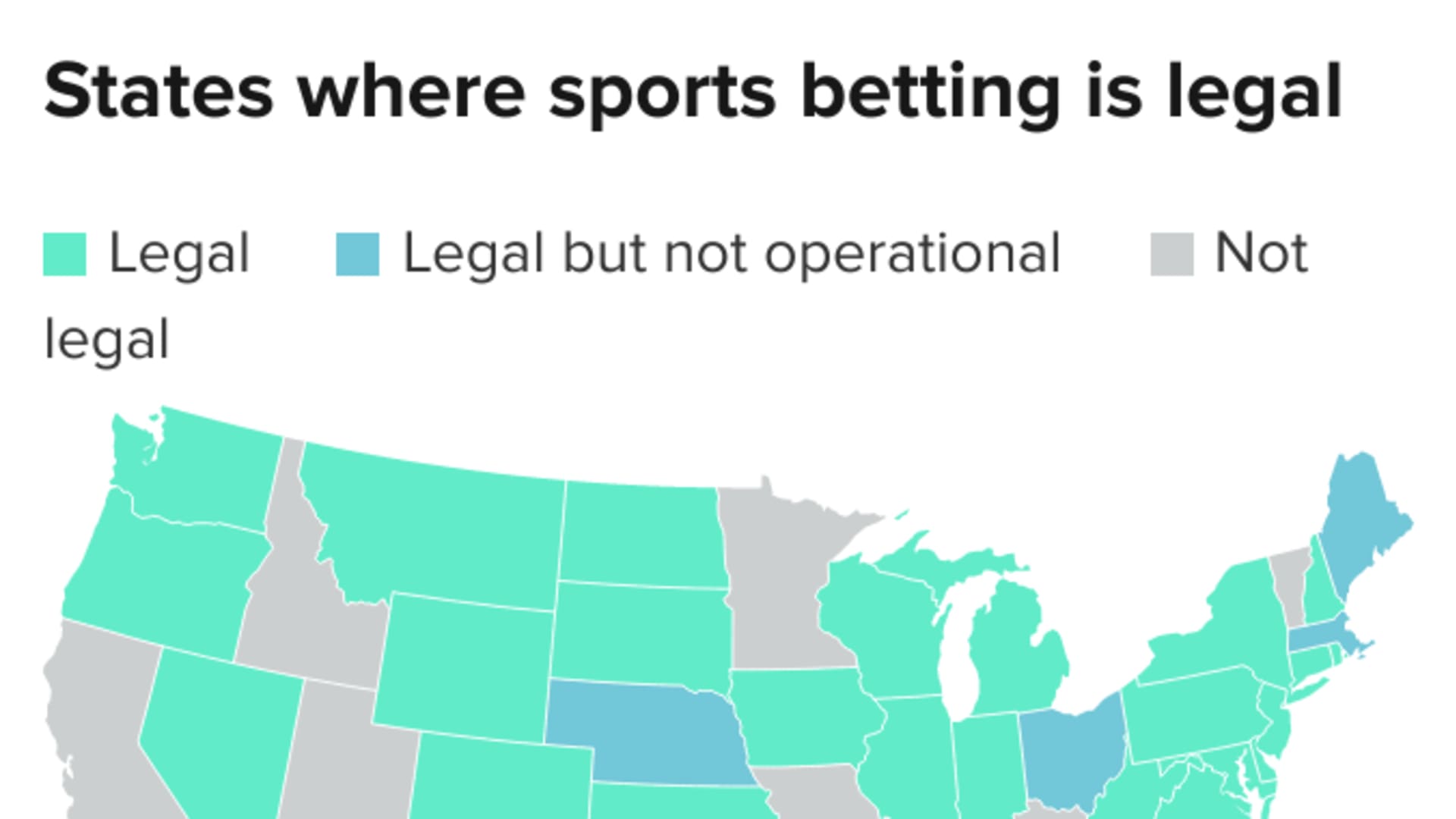
This year's FIFA World Cup is the first men's tournament since the Supreme Court's decision to end the federal ban on sports betting in 2018 allowed a growing list of states to legalize the activity.
An estimated 132 million Americans now live in states where sports betting is legal, compared with just 10 million during the last World Cup four years ago.
As such, 20.5 million Americans plan to bet a total $1.8 billion on the soccer tournament kicking off this weekend, according to estimates from the American Gaming Association (AGA).
It's encouraging to see bettors taking legality seriously. AGA reports the majority of those betting — 78% — say placing legal bets is important.
Get Tri-state area news and weather forecasts to your inbox. Sign up for NBC New York newsletters.

The AGA also encourages bettors to keep their financial safety top of mind.
"As the World Cup kicks off, anyone getting in on the action should have a game plan to bet responsibly," AGA Senior Vice President Casey Clark said in a press release. "That means setting a budget, keeping it fun, learning the odds and playing with legal, regulated operators."
Money Report
Legal gambling means you may not find yourself in trouble with the law for wagering on the World Cup or any other sporting event. But it also means it may be easier for bettors to slip into dangerous habits.
Just because it's legal doesn't mean it's safe
While placing friendly or even serious wagers on sports can be a fun way to get involved in the game, routine gambling can quickly become a problem, even before the person making bets realizes it.
"[Gambling] is a hidden addiction — there are not as many outward signs," Keith Whyte, executive director of the National Council on Problem Gambling, tells CNBC Make It.
Americans often recognize substance abuse because of the physical, visible effects substances can have on someone's body, Whyte says. But, "there's no substance in gambling, so people misunderstand it as a moral or an issue of weak will."
It's difficult to track the number of Americans dealing with gambling problems or clinically defined gambling addictions due to a lack of reporting, stigma and gaps in education around problematic behaviors. But Whyte says the risk factors that can lead more people to having issues are on the rise.
Risk factors can include lying to your loved ones about gambling or having difficulty cutting back on betting, which NCPG has been able to track through surveys.
These indicators have "risen by about 30% between 2018 and 2021," says Whyte. "We've also seen significant increases in calls, texts and chats to our national helpline — roughly a 45% increase in calls between 2021 and 2022."
While those reports are not a direct correlation to a rise in problem gambling or addictions, they still signal that an increase in gambling venues can drive an uptick in concerning habits, Whyte says.
'The odds are always against you'
With sports betting, some might assume the risk is lower than games of chance like the lottery or slots because people can study the sports they're watching. Or maybe they've had some expertise as a player, which can help them better predict outcomes.
But Whyte says the opposite is true and that sports betting can carry a higher risk due to such confidence.
"Sports betting is seen as a game of skill, some people think they're better at it than others," Whyte says. "But with that, the more [frequently] they bet, the more skilled they become. It can encourage chasing your losses and persisting in gambling behavior far past the limits you set, far past reasonable losses and into significant financial harm."
Ease of access has also made people more susceptible to gambling problems, Whyte says. Before mobile sports betting became widely legal, bettors had to go to a physical sportsbook or work with a live bookie to place bets.
"It can be extremely high speed and high stakes, with 24-hour or immediate access using electronic payments," Whyte says. "The odds are always against you in the long term — the more you gamble, the more likely you are to lose."
Keeping your wagers friendly
While some states have enacted regulation to try to address gambling problems, Whyte says they are the exception.
"Most states are either too ignorant about the problems they create or they're simply indifferent to the problems because their eyes are blinded by the windfall tax revenues," Whyte says of gambling safeguards.
"I think states don't want to be on the hook for something they see as an individual sort of social problem," he adds.
In that case, the onus is on individuals to protect themselves from placing risky bets or making too much of a habit out of gambling. That's one reason NCPR created a website that offers tips and resources for bettors to gamble safely, like setting a strict budget for your wagers and encouraging the notion of quitting when it's no longer a fun experience.
As Kenny Rogers famously sang, "know when to walk away, and know when to run."
If you or someone you know shows signs of a gambling problem, you can call or text the National Problem Gambling Helpline at 1-800-522-4700 for free, confidential help available 24/7.
Want to earn more and work less? Register for the free CNBC Make It: Your Money virtual event on Dec. 13 at 12 p.m. ET to learn from money masters like Kevin O'Leary how you can increase your earning power.
Don't miss: 33% of Americans anticipate going into debt after splurging on their favorite sports teams






